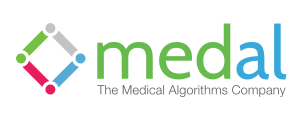You’ve seen it advertised through medical association emails, heard about it in the doctor’s lounge, and maybe even had some nightmares about it. The ICD-10 (International Classification of Diseases, Tenth Edition) transition is coming. One fact that many doctors, coders, and hospital admins, may be unaware of is that the ICD-10 was actually endorsed by the Forty-third World Health Assembly in May 1990. Now 25 years later, the US is finally ready to adopt ICD-10. With the change in number of possible diagnosis codes from the current 14,000+ codes available in ICD-9 to 68,000+ codes in ICD -10, there is certain to be some headaches coming for everyone involved in the care of patients.
Using Algorithms to Assist with ICD 10 Code Lookup
Depending on your electronic medical record and billing system, you may still be coding by hand or using itemized superbills. Medical algorithms from Medicalalgorithms.com can assist in refining a diagnosis and treatment plan as well as provide the associated first 3 characters of the accompanying ICD-10 code.
Using Algorithms to Increase Likelihood of Timely Reimbursement
The ICD-10 transition is scheduled to start on October 1st, 2015. At that time, all submitted insurance claims must include the proper ICD-10 code. Additionally, payers are likely to be looking for any issue with the claim, not only with coding, but also with the accompanying documentation before releasing any payment associated with a patient encounter. The use of evidence-based clinical decision tools will show payers that the physician’s assessment and plan followed evidence-based criteria. It is also likely that in the near future, the majority of clinical decisions will need to be supported by evidence or detailed explanation as to why a doctor is choosing a specific set of laboratory or radiographic tests and/or treatment plans. This is another area that medical algorithms can assist physicians; by inputting criteria into a gold-standard algorithm and using the results and interpretation in the patient encounter note. Making this sort of documentation a part of your daily encounters will improve your documentation and improve your chances for timely reimbursement.
Changes in medicine are upon us. The ICD-10 transition, precision medicine, and population health are just a few of aspects that will make up the future of medicine. Physicians, hospitals, and other members of the healthcare team will need to adapt to this new wave in medicine. Patients, ever more in-tune with their own health, will expect that their doctors are up-to-date with the latest evidence-based practices and may soon reference an algorithm to their own doctor when discussing their care.


